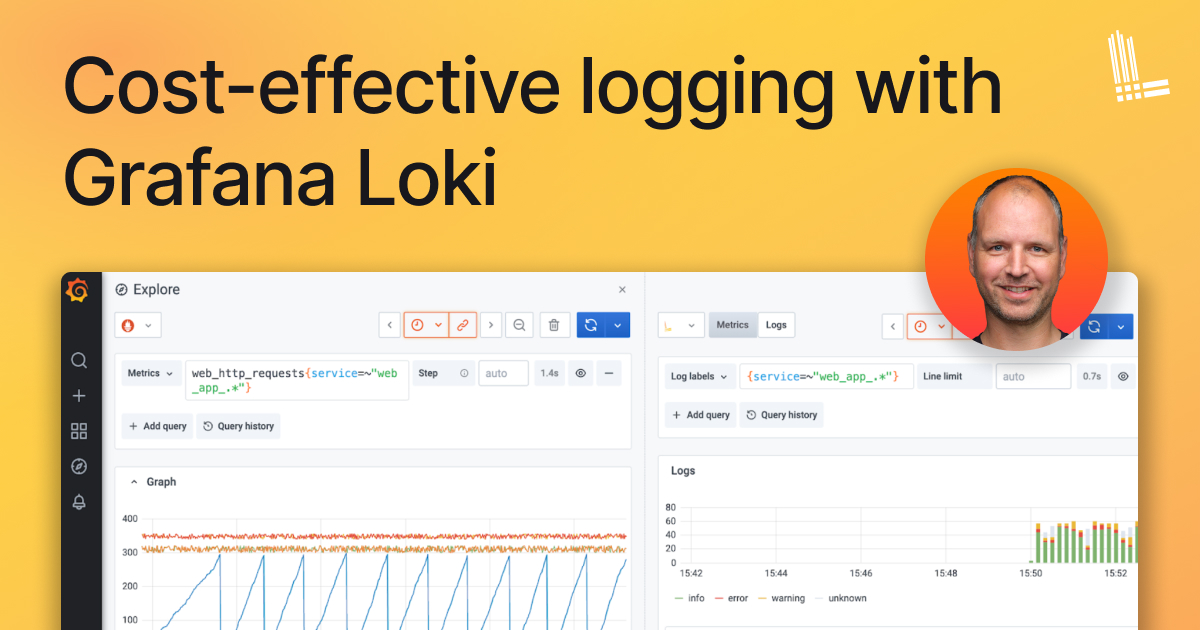What you'll learn
- A review of Loki and what sets it apart from other logging solutions
- Benefits of using Grafana Cloud Logs
- Challenges with logging as organizations scale and the volume of logs explodes
- How Grafana Cloud Logs and Grafana Enterprise Logs (GEL) enable organizations to securely make logs available to any team members who need them
- How GEL builds upon open source Loki by giving you security-by-default and simplifying configuration management
- Features available in Grafana Cloud Logs and GEL and how to get access
Updated version here
The move to cloud native and microservice-based architectures has led to an explosion in the volume of logs. As valuable as they are, we often hear from enterprise customers that existing logging solutions become prohibitively expensive as businesses scale, and don’t natively integrate with metrics.
We started the open source Loki project to solve these problems, and we’ve seen it skyrocket in popularity since its launch in 2018. Loki only indexes the metadata surrounding the logs, not the log lines themselves, making it a fast, cost-effective, and highly scalable solution. By using the same service discovery as Prometheus, Loki can guarantee your logs have consistent labels with your metrics — which allows you to seamlessly switch between metrics and logs, preserving context and saving time.
Grafana Enterprise Logs (GEL) delivers all the benefits of Loki and layers on the additional features that are a must for enterprises looking for a self-managed logging solution including access controls, indemnification, and support guarantees.
Grafana Cloud Logs offers users looking for a turnkey solution for hosting logs using Grafana Loki, offered as a SaaS solution from Grafana Labs.
Additional resources to explore:
Your guide


